POVERTY THOUGHT FORCE WORLD CAFÉ ON Health & Wellness
Policy Ideas Generated
Question 1: How can we enhance infant/early-childhood outcomes?
1. Focus on the health of the mother
o Integrate parental health education initiatives within pregnancy classes
2. Tax incentives for businesses to increase maternity leave above the required time periods
3. Provide incentives for mothers and fathers to participate in prenatal education
o Give every mother a ‘box’ with basic necessary supplies as they leave the hospital (Finland has this program)
4. Early intervention programs
o Programs catered to people with special needs/non-English speakers
o Pregnancy workshops for expecting mothers and fathers
o Educate to promote breastfeeding, encourage them to stay in school, postpartum depression, and healthy food preparation techniques
o WIC program should be offered to every mother leaving the hospital (increase awareness), with information on where it is accepted
o Vaccine education campaign in order to clarify misconceptions
Question 2
How best to shift providers and patients alike to a focus on preventive care, e.g. treatment of
1. Community garden where people can trade skills for food
2. Provide an option for former patients to stay at a halfway house when they come out of the hospital
3. Revamp transportation
o Change bus routes to make them more effective and efficient for getting health care
o Free bussing for those who qualify- more inclusiveness of potential customers
o More focus on bus lines to the grocery store
4. Pay providers based on outcome not episode (quantity)
5. Make food stamps twice as valuable when buying healthy food
6. Monetize preventative care to discourage providers from sending people off for surgery
7. Teach health in early school and childhood centers
Question 3
How might we expand access to reliable and affordable health care, including mental health care?
1. Affordable health care
o Lobby for Medicaid expansion in North Carolina, including extending continuous eligibility for children.
o Create a city emergency medical fund to which people can apply for grants to pay for their medical bills.
o Teach about telemedicine opportunities for those with smartphones, especially with an eye towards behavioral health.
2. Clinic policy
o Provide childcare for doctor appointments, since kids aren’t allowed in some waiting rooms.
o Increase level of care at clinics, not just their number. People need more than just a checkup.
3. Health care integration
o Put behaviorists in clinics to see patients alongside medical providers. This removes stigma by creating integrated care, from which they can be referred to other mental health care providers.
o Increase care coordination by giving permission to healthcare providers to share information with each other, pop up shops, and school systems about patients.
4. Neighborhood interventions
o Put community care centers in magnet schools that have health science magnets, creating community hubs for health care.
o Mobile care clinics with mental health care, therapy, and reproductive health care provided.
o Increase opportunities for Wake Forest Baptist Medical students to do pro-bono care outside of the DEAC clinic in high-need communities.
o Identify for various sectors of the community who they go to for advice and target care education at them, thereby expanding care teams to informal providers.
5. Mental health stigma
o Have conversations about masculinity among young men to decrease it as a mental health care barrier. These could include videos from the providers themselves, allowing them to meet that professional before even going to the clinic. It could also connect them with ethno-racially similar providers, so their providers look like them. Could be initiated within a broader “chronic disease study,” so men are more inclined to participate.
6. Transportation
o Have public buses run later into the night.
o Coordinate parents getting to school for their kids’ trauma-based care and/or psychiatric care.
